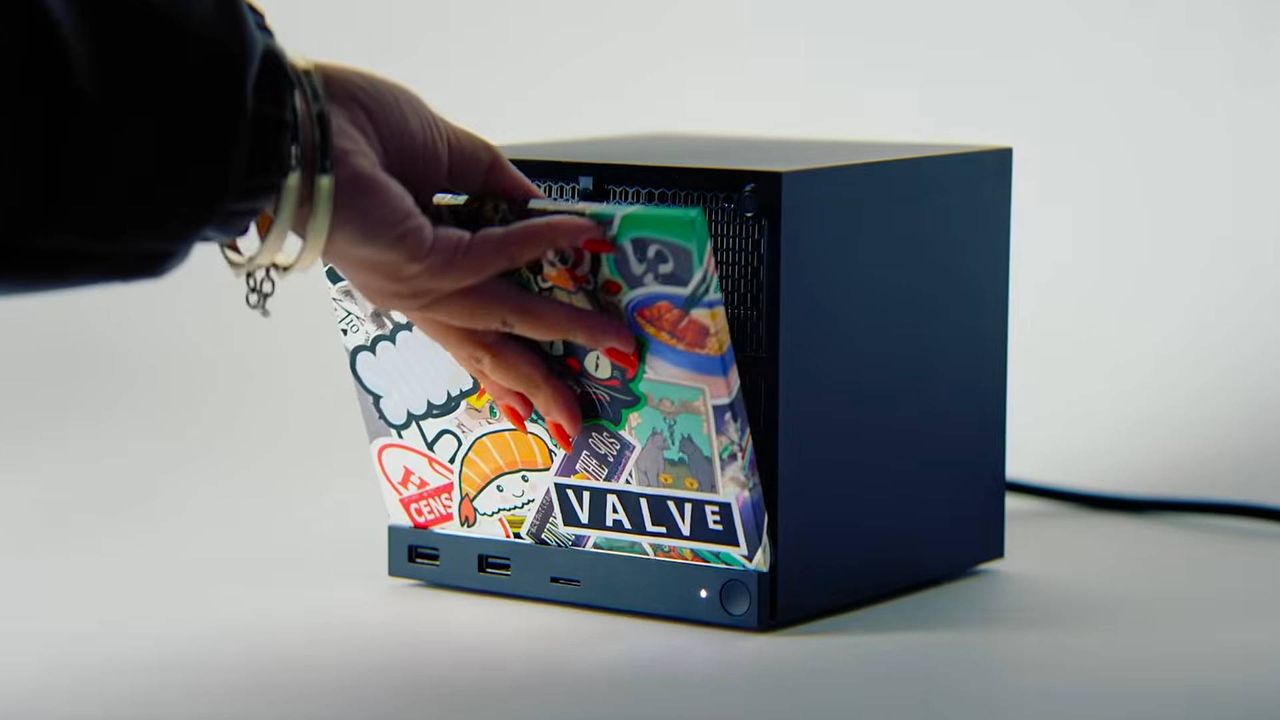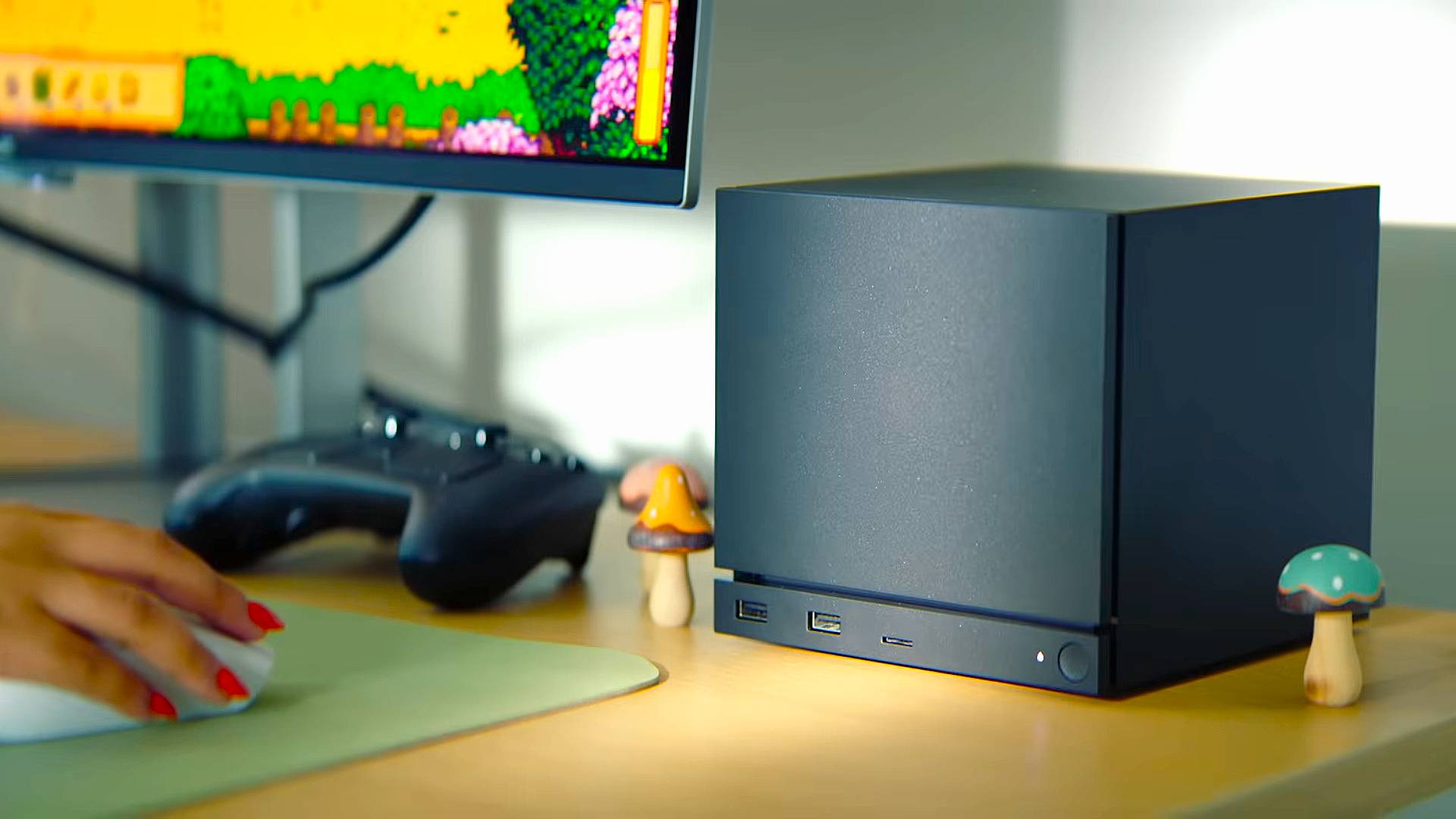
Valve's new Steam Machine is set to bring PC gaming to living rooms everywhere when it launches next year, but is it a fierce new console rival that'll compete directly against the likes of PlayStation, Xbox, and Nintendo, or is it more of a PC alternative, or something in between? Analysts have been sharing their thoughts with us.
Joost van Dreunen, an NYU Stern School of Business professor and former CEO of games market research firm SuperData Research, argues that the Steam Machine is "a console that refuses to admit it's a console." However, that doesn't mean that we could see a traditional console rivalry from Valve's new hardware.
"Valve isn't trying to beat Sony or Microsoft at their own game so much as rewrite the rules by blurring PC and console into one stack," he suggests. "It performs roughly on par with a PS5, lives under your TV, and boots like a console, but the business logic is pure PC. The real competition is over distribution control, not teraflops."
Meanwhile, Dr. Serkan Toto, CEO of Japan games industry consultancy Kantan Games, believes that "the Steam Machine tries to be a bit of everything," but while he's "sure it will be a great device," he suggests: "I don't really see the Steam Machine scaling at a level of the consoles we have in the market."
He continues, noting that even if the Steam Machine doesn't end up being a major rival for the likes of the PS5, Xbox Series X, and Switch 2, that doesn't have to be a negative thing. "In the end, the device is most probably going to serve a niche and not the mainstream – which is not necessarily a bad thing for a cash-rich company like Valve," he explains.

Similarly, veteran games industry analyst and Circana's senior director and video game industry thought leader, Mat Piscatella, expects the Steam Machine "to be what Steam Deck was in terms of positioning... Valve redefining and then dominating a segment of the market that already has existing manufacturers that won't be able to compete on product, price, positioning or promotion.
"I don't think the consoles will be the primary competitors," he continues, suggesting that the hardware is designed to appeal and ultimately be "sold to people already invested in the Steam ecosystem."
David Cole, founder and CEO of research firm DFC Intelligence, also believes that for the time being, "the Steam Machine will have a fairly niche appeal compared to PlayStation and Nintendo products." That's not to say that things couldn't change over time, though. Not only does he note that the hardware appears to "go after not only the Xbox console but also the Windows as a game platform as it runs SteamOS," but "if Valve remains committed the Steam Machine is likely to evolve and could eventually be a console alternative."
Of course, a lot of this remains to be seen. The Steam Machine is set to release early next year, and we still don't know the price of it – a factor that'll no doubt be influential when it comes to persuading (or dissuading) customers to potentially pick up Valve's new hardware, potentially instead of one of the main three current home consoles.







